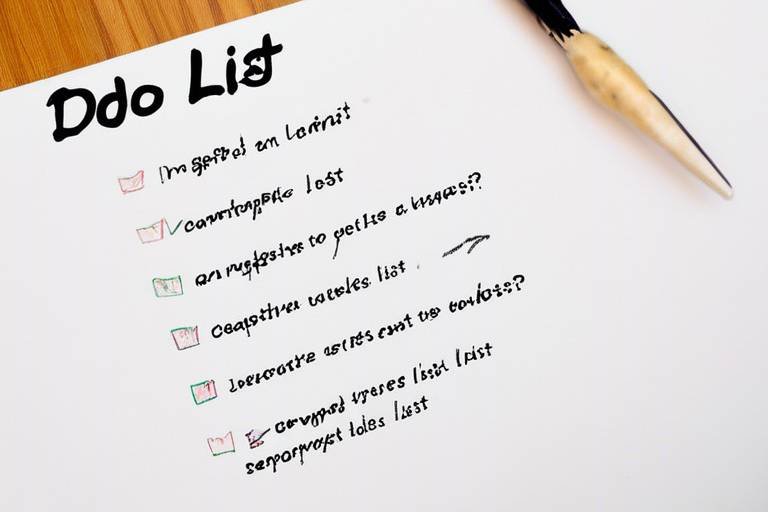How to Improve Your Public Speaking Skills
Improving your public speaking skills is a valuable asset that can elevate your communication abilities and boost your confidence in front of an audience. Whether you are a novice or seasoned speaker, there are various techniques and strategies you can employ to enhance your public speaking prowess.
One essential tip to enhance your public speaking skills is to practice regularly. Consistent practice allows you to become more comfortable and polished in delivering speeches or presentations. By setting aside dedicated time to rehearse your content, you can refine your delivery and overcome any nervousness that may arise when speaking in public.
Joining a Toastmasters club can also significantly contribute to your growth as a public speaker. Toastmasters provides a supportive environment where you can practice speaking, receive constructive feedback, and develop leadership skills. Engaging with a community of like-minded individuals can boost your confidence and offer valuable insights into improving your communication abilities.
Body language is another crucial aspect of public speaking that should not be overlooked. Nonverbal cues such as eye contact, gestures, and posture play a significant role in conveying your message effectively to the audience. Practicing good body language can enhance your delivery and help you establish a strong connection with your listeners.
Understanding your audience is key to delivering impactful presentations. Tailoring your message to resonate with the interests, knowledge, and needs of your audience can make your speech more engaging and relevant. By knowing who you are speaking to, you can adapt your content to capture their attention and leave a lasting impression.
Using visual aids effectively can also elevate your presentation skills. Visual supports such as slides, props, or multimedia tools can enhance the audience's understanding of your message and reinforce key points. Incorporating visual aids strategically can make your presentation more dynamic and engaging.
Managing nervousness before speaking in public is a common challenge that many individuals face. Learning techniques such as deep breathing, positive visualization, and relaxation exercises can help you calm your nerves and deliver a confident presentation. By addressing your nervousness, you can focus on delivering your message effectively.
Soliciting feedback from trusted peers, mentors, or coaches is essential for continuous improvement in public speaking. Constructive criticism can provide valuable insights into areas where you can enhance your delivery and address any weaknesses. Embracing feedback as a tool for growth can help you refine your skills and become a more effective speaker.
Studying great speakers and analyzing their techniques can offer valuable lessons for your own public speaking journey. Observing renowned speakers can inspire you, provide insights into effective communication strategies, and help you develop your unique speaking style. Learning from successful speakers can broaden your perspective and enhance your presentation skills.
Engaging in improv activities can also be beneficial for honing your public speaking skills. Participating in improv exercises or workshops can boost your spontaneity, creativity, and ability to think on your feet during presentations. Improv activities can help you become a more dynamic and engaging speaker, allowing you to connect with your audience in a unique way.

Practice Regularly
Enhance your ability to communicate effectively in public by following these tips and techniques that will boost your confidence and make your presentations more engaging and impactful.
Consistent practice is key to improving your public speaking skills. Set aside time to rehearse your speeches, presentations, or pitches to become more comfortable and polished in front of an audience. Regular practice helps you refine your delivery, work on your pacing, and build a strong connection with your listeners. Just like a musician who practices daily to master a piece, practicing regularly will help you become a confident and compelling speaker.

Join a Toastmasters Club
Joining a Toastmasters Club can significantly benefit individuals looking to enhance their public speaking skills. Toastmasters provides a supportive and encouraging environment where members can practice speaking in front of a group, receive constructive feedback, and develop their leadership abilities. By participating in Toastmasters meetings, individuals have the opportunity to engage in various speaking roles, such as prepared speeches, impromptu talks, and evaluations, which help them refine their communication skills.
Moreover, being part of a Toastmasters Club allows individuals to learn from the experiences of others and observe different speaking styles and techniques. The diverse membership base provides a range of perspectives and insights that can inspire and motivate individuals to improve their own speaking abilities. Additionally, the structured meeting format of Toastmasters ensures that members have regular opportunities to practice speaking, receive feedback, and track their progress over time.
Joining a Toastmasters Club not only helps individuals become more confident and polished speakers but also fosters a sense of community and camaraderie among members. The supportive atmosphere encourages individuals to step out of their comfort zones, take on new challenges, and continuously strive for improvement. Whether you are a novice or an experienced speaker, Toastmasters offers a platform for growth and development in public speaking and leadership skills.

Work on Body Language
Enhance your ability to communicate effectively in public by following these tips and techniques that will boost your confidence and make your presentations more engaging and impactful.
When it comes to public speaking, your body language can speak volumes. Imagine yourself as a conductor leading an orchestra; every movement, every gesture, every expression is part of the symphony you are creating for your audience. Just like a skilled conductor, mastering your body language can greatly enhance the harmony of your presentation.
Start by practicing in front of a mirror or recording yourself to observe your gestures, facial expressions, and posture. Are you making eye contact with an imaginary audience? Are your gestures natural and purposeful, adding emphasis to your words? Is your posture upright and confident, reflecting your inner strength?
Remember, your body language should complement your words, not distract from them. Use gestures to emphasize key points, maintain eye contact to establish a connection with your audience, and stand tall with open body language to exude confidence. Your nonverbal cues can convey as much, if not more, than your actual speech, so make sure they are in harmony with your message.
Additionally, consider the power of proxemics, or the use of physical space. Are you moving around the stage with purpose, or are you rooted to one spot? Utilize the stage space to engage different sections of the audience and create visual interest. Your movements should be deliberate and meaningful, enhancing the overall impact of your presentation.
By working on your body language, you can elevate your public speaking skills to new heights, captivating your audience not only with your words but with your entire presence on stage.

Understand Your Audience
When it comes to public speaking, one of the most crucial aspects to consider is understanding your audience. Think of it like preparing a meal – you wouldn't serve steak to a vegetarian, right? Similarly, tailoring your message to resonate with your audience's interests, knowledge, and needs is key to delivering a successful presentation.
Imagine you're speaking to a group of technology enthusiasts. Would they be more engaged with technical jargon and in-depth analysis, or would they appreciate real-life examples and practical applications of the topic? By putting yourself in their shoes and understanding what they expect from your speech, you can adjust your content to capture their attention and make a lasting impact.
Moreover, knowing your audience allows you to anticipate their questions and concerns, enabling you to address them proactively during your presentation. This not only shows that you've done your homework but also builds rapport and credibility with your listeners.
Consider conducting a brief survey or engaging in pre-event conversations to gather insights about your audience demographics, preferences, and expectations. This information can guide you in customizing your speech to meet their specific needs and ensure that your message resonates effectively.

Use Visual Aids Effectively
When it comes to public speaking, using visual aids effectively can significantly enhance your presentation and engage your audience on a deeper level. Visual aids serve as powerful tools to complement your spoken words, reinforce key points, and create a more memorable experience for your listeners.
One way to use visual aids effectively is to incorporate well-designed slides into your presentation. These slides should be clear, concise, and visually appealing, highlighting important information or data that you want to emphasize. Avoid overcrowding your slides with text, as this can overwhelm your audience and detract from your message.
In addition to slides, consider using props or physical objects to enhance your presentation. Props can add a tactile element to your speech, making it more interactive and engaging for your audience. Whether it's a demonstration, a model, or a relevant object, incorporating props can help illustrate your points effectively.
Another effective visual aid is the use of multimedia tools such as videos, images, or animations. These dynamic elements can bring your presentation to life, capturing the attention of your audience and enhancing their understanding of complex concepts. Just ensure that the multimedia you use is relevant, high-quality, and supports your message.
Remember, the key to using visual aids effectively is to ensure that they enhance your presentation rather than distract from it. Visual aids should complement your speech, not overshadow it. By incorporating visually appealing and relevant elements into your presentation, you can create a more engaging and impactful public speaking experience for both you and your audience.

Manage Nervousness
Enhance your ability to communicate effectively in public by following these tips and techniques that will boost your confidence and make your presentations more engaging and impactful.
Feeling nervous before public speaking is a common experience that many people face. However, managing this nervousness is crucial to delivering a confident and successful presentation. One effective way to tackle nervousness is through the practice of deep breathing exercises. By taking slow, deep breaths before stepping onto the stage, you can calm your nerves and center yourself. Additionally, engaging in positive visualization can help you imagine a successful outcome, boosting your confidence and reducing anxiety.
Another strategy to manage nervousness is to focus on relaxation techniques. Whether it's through meditation, progressive muscle relaxation, or mindfulness practices, finding a method that works for you can significantly reduce anxiety levels. By incorporating these relaxation techniques into your pre-speech routine, you can enter your presentation with a clear mind and a more composed demeanor.
Furthermore, reframing nervousness as excitement can be a powerful mindset shift. Instead of viewing those butterflies in your stomach as a sign of fear, consider them as a surge of energy that can fuel your performance. Embracing the excitement of public speaking can help you channel your emotions positively and turn nervous energy into enthusiasm and passion for your topic.
1. How long does it take to improve public speaking skills?
Improving public speaking skills is a gradual process that varies for each individual. Consistent practice, feedback, and learning from others can accelerate skill development.
2. Can anyone become a great public speaker?
Yes, with dedication, practice, and a willingness to learn, anyone can improve their public speaking skills and become a confident and engaging speaker.
3. Is joining a Toastmasters club necessary to improve public speaking?
While joining a Toastmasters club can provide valuable support and resources, there are various other ways to enhance public speaking skills, such as online courses, workshops, and self-study.

Solicit Feedback
Feedback is a crucial component in improving your public speaking skills. By seeking feedback from trusted peers, mentors, or coaches, you can gain valuable insights into your strengths and areas for improvement. Constructive criticism acts as a mirror, reflecting back to you aspects of your delivery that you may not have noticed on your own.
When soliciting feedback, it's essential to approach it with an open mind and a willingness to learn. Encourage your feedback providers to be honest and specific in their critiques, as this will help you pinpoint areas that need attention. Remember, feedback is not about tearing you down but about building you up and helping you grow as a speaker.
One effective way to solicit feedback is to record your presentations or speeches and review them with a critical eye. Pay attention to your tone, pacing, body language, and overall delivery. This self-assessment can provide valuable insights, and you can compare your observations with feedback from others to get a well-rounded view of your performance.
Additionally, participating in mock presentations or speaking engagements can offer a safe space to receive feedback from a simulated audience. This practice environment allows you to test new techniques, receive immediate feedback, and make adjustments before facing a real audience.
Remember, feedback is a gift that can propel your public speaking skills to new heights. Embrace it, learn from it, and use it to refine your delivery and connect more effectively with your audience.

Study Great Speakers
When it comes to improving your public speaking skills, one of the most effective strategies is to study great speakers. By observing and analyzing successful public speakers, you can gain valuable insights into their techniques and styles, which can inspire and inform your own approach to public speaking.
Watching renowned speakers in action allows you to learn how they engage with their audience, structure their presentations, and deliver their messages effectively. By studying great speakers, you can pick up on nuances in their delivery, such as tone of voice, pacing, and use of humor or storytelling, that contribute to their impact and charisma on stage.
Furthermore, studying great speakers can help you develop your unique speaking persona. By identifying elements of various speakers' styles that resonate with you, you can incorporate those aspects into your own presentations while staying true to your authentic voice and personality. This process of emulation and adaptation can lead to the cultivation of a compelling and engaging speaking style that sets you apart from the crowd.

Engage in Improv Activities
Engaging in improv activities is a fun and effective way to enhance your public speaking skills. Improv exercises help you think quickly on your feet, improve your spontaneity, and boost your creativity, all of which are valuable traits for engaging an audience. By participating in improv workshops, you can learn to adapt to unexpected situations during presentations and develop the confidence to handle any curveballs that may come your way.
Improv activities also help you become a more dynamic speaker by encouraging you to explore different communication styles and experiment with various storytelling techniques. The collaborative nature of improv fosters teamwork and enhances your ability to connect with your audience through humor, empathy, and authenticity. Additionally, improv can help you overcome the fear of making mistakes and teach you to embrace the unexpected, turning potential mishaps into memorable moments that captivate your listeners.
Furthermore, improv activities provide a supportive and non-judgmental environment where you can practice taking risks, stepping out of your comfort zone, and building confidence in your speaking abilities. By engaging in improv, you can break free from scripted presentations and learn to trust your instincts, allowing your natural charisma and personality to shine through in your public speaking engagements.
Frequently Asked Questions
- How can I overcome nervousness when speaking in public?
Managing nervousness is a common challenge for many speakers. To overcome it, try practicing deep breathing exercises, visualization techniques, and relaxation methods before your presentation. Additionally, focusing on your message and the value you are providing to your audience can help shift your focus away from your nerves.
- Why is understanding the audience important in public speaking?
Understanding your audience is crucial because it allows you to tailor your message to their interests, knowledge, and needs. By connecting with your audience on a personal level and addressing topics that resonate with them, you can create a more engaging and impactful presentation.
- How can visual aids enhance my presentation?
Visual aids can complement your spoken words by providing additional context, emphasizing key points, and keeping your audience engaged. When used effectively, visual aids such as slides, props, or multimedia tools can enhance the overall impact of your presentation.



















